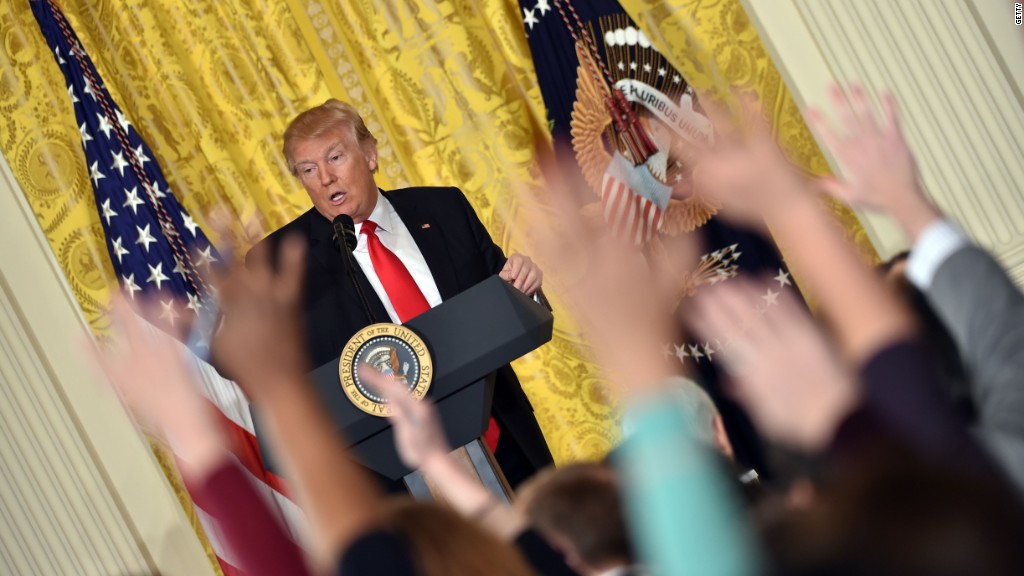
President Trump has called reporters dishonest, said the media is "the enemy of the American people," and mused about making it easier to sue journalists. And, according to a new report, he has gone even further than that in private, telling then-FBI Director James Comey that Comey should consider locking reporters up.
Trump said this to Comey during a meeting in the Oval Office in February, according to a New York Times report Tuesday. The request came during the same meeting in which Trump is said to have asked Comey to drop the federal investigation into former national security adviser Michael Flynn, potentially interfering with the investigation into alleged ties between Trump's presidential campaign and Russian officials.
Related: Does anyone in Trump's White House have credibility?
Comey's account of the meeting was documented in a memo he prepared afterward, first reported by the Times. CNN has confirmed the existence of the memo and the fact that it says Trump asked Comey to drop the investigation, but has not yet confirmed the request regarding reporters, which the Times reported on based on an "associate" of Comey's reading it to the Times reporter.
The White House did not initially respond when asked Tuesday to address the president's remark about imprisoning reporters. It did release a statement saying reports about Comey's memo did not offer "a truthful or accurate portrayal of the conversation between the President and Mr. Comey," and that the president "never asked Mr. Comey or anyone else to end any investigation, including any investigation involving General Flynn."
On Wednesday, a White House official said to CNN that Comey's reported recollection of the part of his conversation with Trump regarding reporters is inaccurate.
Related: Why James Comey's congressional testimony will be 'one for the history books'
Since launching his bid for the presidency in June 2015, Trump has repeatedly railed against media organizations and specific reporters, accusing them of being dishonest or corrupt. On several occasions, he has suggested changing libel laws in order to make it easier to sue news organizations. As president, he has stressed the illegality of leaking classified information and suggested that those who do so should be punished.
But Trump's suggestion to the director of the FBI in the Oval Office would, if accurate, be the most direct effort by the president to try to influence punitive measures for members of the media who receive and publish those leaks.
In a statement following the Times' report, Bruce Brown, the executive director of the Reporters Committee for Freedom of the Press, said, "The comments attributed to President Trump cross a dangerous line. ... Comments such as these, emerging in the way they did, only remind us that every day public servants are reaching out to reporters to ensure the public is aware of the risks today to rule of law in this country. The president's remarks should not intimidate the press but inspire it."
-- CNN's Jim Acosta contributed reporting.


